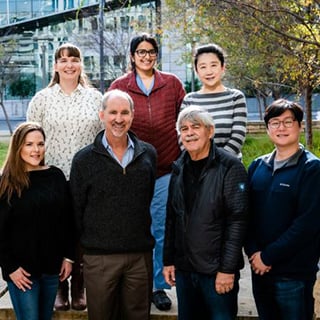Feeling at home
From bedside bingo to therapy dogs, we're here to help kids smile and feel more like themselves.
Visit Child Life services

Differences in sex development, or DSD (previously called intersex), encompasses a range of conditions involving abnormal development of sex organs and ambiguous genitalia (external genital organs that aren’t clearly male or female).
The cause of DSD is often unknown. Sex organ development is a complex, multistep process, and an error in any step can result in DSD. Abnormalities in chromosomes or in hormone production and activity may also play roles. The most common cause of atypical genitalia in genetic females is an abnormality in the adrenal glands that results in overproduction of male hormones.
At UCSF, we offer specialized care for children with DSD and for their families in our Differences in Sex Development Clinic, which brings together experts in pediatric urology, pediatric endocrinology, reproductive endocrinology, genetics, child psychology, social work, nursing and other relevant fields.
DSD encompasses a range of conditions that may manifest in different ways. Possible signs include:
In most cases, we know that a child has a difference in sex development by looking at the genitals. In other cases, it's less clear. Most children are diagnosed at birth, but sometimes the condition isn’t detected until adolescence.
DSD covers a range of conditions, so making a diagnosis requires several tests. The results can shed light on the most appropriate gender to assign your baby. The process may include:
Treatment depends on the condition we diagnose. Some children need surgery to prevent medical problems. Some children require lifelong hormone or electrolyte supplements. Our team’s role is to support the child and family through the process of gender assignment and medical care.
UCSF Benioff Children's Hospitals medical specialists have reviewed this information. It is for educational purposes only and is not intended to replace the advice of your child's doctor or other health care provider. We encourage you to discuss any questions or concerns you may have with your child's provider.

UCSF Baskin Lab
The Baskin Laboratory investigates the causes of pediatric urological diseases present at birth or acquired later. The lab's research has a special focus on curing and preventing hypospadias, in which the urethra's opening is on the underside of the penis.

Ranked among the nation's best in 11 specialties
Feeling at home
